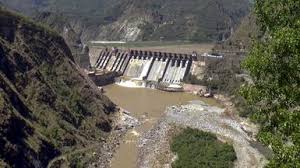After Indus Waters Treaty suspension: India seeks pause in World Bank expert’s proceedings over Kishanganga & Ratle

New Delhi – In a move that could reshape regional water diplomacy, India has formally requested a pause in the World Bank-facilitated proceedings concerning the Kishanganga and Ratle hydroelectric projects. This decision follows India’s suspension of the Indus Waters Treaty (IWT) in April 2025, a response to the Pahalgam terror attack, which New Delhi blames on Pakistan-based actors.
India’s action introduces new complexities in a treaty framework that has remained largely intact for over six decades. Officials argue that escalating cross-border terrorism creates a fundamentally different political climate—one that no longer supports the terms of the original agreement.
🇮🇳 Why India Requested a Pause
Indian officials claim the treaty’s continued operation is not feasible under current circumstances. They cite a “fundamental change of circumstances,” pointing to repeated acts of terror, including the deadly April attack in Pahalgam.
Rather than continue with the scheduled legal process, India has urged Neutral Expert Michel Lino, appointed by the World Bank, to pause all proceedings. This includes Pakistan’s pending counter-memorial submission due in August and a planned meeting in Vienna later this year.
A senior Indian diplomat clarified the government’s position, stating:
“The treaty is in abeyance. Therefore, the mechanisms flowing from it, including third-party dispute resolution, must also pause.”
🔍 The Hydropower Disputes: Kishanganga & Ratle
Two Indian hydropower projects remain at the center of the current dispute:
- Kishanganga (330 MW) – Built on a tributary of the Jhelum River, it began operating in 2018. Pakistan claims India unlawfully diverted water.
- Ratle (850 MW) – Still under construction on the Chenab River, this project raised objections over pondage levels and spillway designs.
Although both projects are situated on rivers allocated to Pakistan under the treaty, India asserts that the designs adhere to treaty guidelines and do not affect downstream flows. Indian officials emphasize that the Indus Waters Treaty permits run-of-the-river projects if they meet specific technical conditions.
⚖️ Legal & Diplomatic Stalemate
Tensions between India and Pakistan escalated in 2022 when both countries invoked different mechanisms to resolve the dispute. While India requested a neutral expert, Pakistan sought arbitration from a Court of Arbitration. In an attempt to placate both sides, the World Bank allowed both paths to proceed in parallel.
In January 2025, the neutral expert ruled that he could adjudicate the matter. India viewed this as a validation of its approach. Now, by suspending the treaty and requesting a halt in proceedings, New Delhi seeks to exit the legal process entirely—at least for the time being.
The implications are significant. If the neutral expert pauses the proceedings, it could stall any legal progress Pakistan hopes to make against the projects. Additionally, it challenges the assumption that the treaty is immune to political developments.
🇵🇰 Pakistan’s Response and Legal Options
Unsurprisingly, Pakistan has strongly objected to India’s actions. Islamabad maintains that the Indus Waters Treaty is a binding international agreement, and cannot be unilaterally suspended.
A Pakistani foreign office spokesperson commented:
“India’s decision to suspend the treaty and pause dispute resolution is a violation of international law. We will pursue appropriate remedies.”
Pakistan is reportedly considering the following options:
- Escalating the matter to the International Court of Justice (ICJ)
- Re-engaging the Permanent Court of Arbitration (PCA)
- Requesting intervention from the United Nations
The stakes are high. Roughly 80% of Pakistan’s agriculture depends on the Indus River system. A long-term disruption in water flow could have serious consequences for food security and rural livelihoods.
🌐 World Bank’s Limited Role
Despite its association with the treaty, the World Bank serves only as a facilitator, not an enforcer. It played a key role in appointing the neutral expert and assembling a court of arbitration. However, it lacks the authority to compel compliance.
In a recent statement, World Bank President Ajay Banga reiterated this limitation:
“The Bank’s role is defined by the treaty. We cannot interfere beyond facilitating appointments and communications.”
Because of this, the World Bank is unlikely to push back against India’s request. Observers believe the decision now rests with the neutral expert, who must decide whether to pause proceedings or continue without India’s cooperation.
🔍 Broader Implications for South Asia
India’s action has broad implications for the region:
- For India: The move allows flexibility in managing river projects while applying political pressure on Pakistan over terrorism. It also sets a precedent for suspending treaties under security concerns.
- For Pakistan: Water insecurity is a growing fear. Any reduction in flow from the Indus or its tributaries would endanger millions of livelihoods.
- For regional stability: Water, once a symbol of peaceful cooperation, now risks becoming a point of conflict. The situation demands fresh diplomatic engagement to avoid further escalation.
🔮 What Lies Ahead?
The next steps are uncertain. India has already communicated its position to the neutral expert. Whether the proceedings are paused may depend on how the expert and the World Bank interpret India’s treaty suspension.
Meanwhile, Pakistan is expected to escalate the matter internationally. Legal experts predict that any resolution will take time, especially if the issue moves to forums like the ICJ or PCA.
What remains clear is that the Indus Waters Treaty—once hailed as a model of transboundary water cooperation—is facing its greatest test yet.






